News in Brief
-
 Health & Medicine
Health & MedicineMosquitoes in Florida now spreading Zika virus, health officials warn
Florida adds 10 new cases of locally acquired Zika infection, prompting the CDC to issue travel warning for pregnant women. Mosquitoes in Miami may be resistant to insecticides.
By Meghan Rosen -
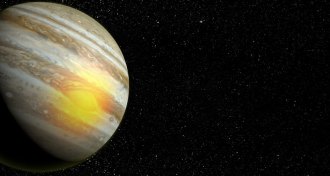 Planetary Science
Planetary ScienceJupiter’s Great Red Spot is hot
High temperatures over Jupiter’s Great Red Spot suggest that storms pump heat into the atmosphere and warm the entire planet.
-
 Animals
AnimalsNeonicotinoids are partial contraceptives for male honeybees
Male honeybees produce less living sperm if raised on pollen tainted with neonicotinoids, tests show.
By Susan Milius -
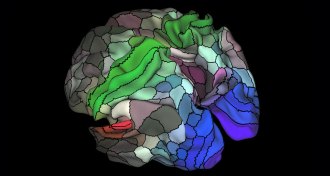 Neuroscience
NeuroscienceNew brain map most detailed yet
By combining different types of data, researchers have drawn a new detailed map of the human brain.
-
 Genetics
GeneticsSwapping analogous genes no problem among species
Many genes are interchangeable between yeast, bacteria, plants and humans.
-
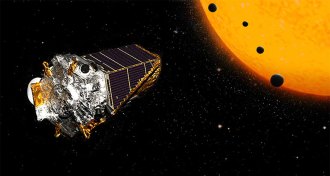 Astronomy
AstronomyKepler tally grows: 104 more exoplanets confirmed
Kepler space telescope adds another 104 planets to its growing census of worlds in our galaxy.
-
 Genetics
GeneticsHerbicide no match for fruit flies’ gut microbes
Friendly gut bacteria team up to break down herbicide that might otherwise harm fruit flies.
-
 Health & Medicine
Health & MedicineNo one-fits-all healthy diet exists
Mice’s response to diet varies with their genes.
-
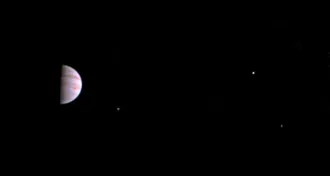 Planetary Science
Planetary ScienceJuno snaps its first pic of Jupiter
Jupiter and three of its moons take center stage in the first snapshot taken by the Juno spacecraft since arriving at the planet on July 4.
-
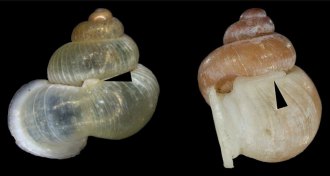 Animals
AnimalsHow snails breathe through snorkels on land
Shells with a tube counterintuitively sealed at the end have hidden ways to let Asian snails snorkel while sealed in their shells.
By Susan Milius -
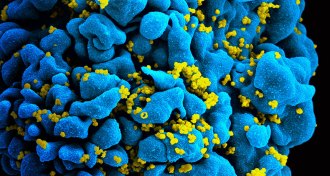 Health & Medicine
Health & MedicineUnprotected sex less risky if HIV-positive partner on antiretroviral therapy
The risk of HIV transmission during unprotected sex drops drastically if the HIV-positive partner is taking antiretroviral therapy.
By Meghan Rosen -
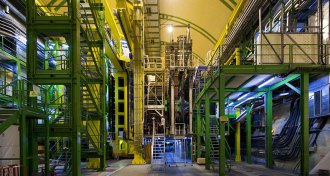 Particle Physics
Particle PhysicsThree cousins join family of four-quark particles
Scientists with the Large Hadron Collider’s LHCb experiment report three new particles and confirm a fourth.